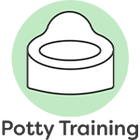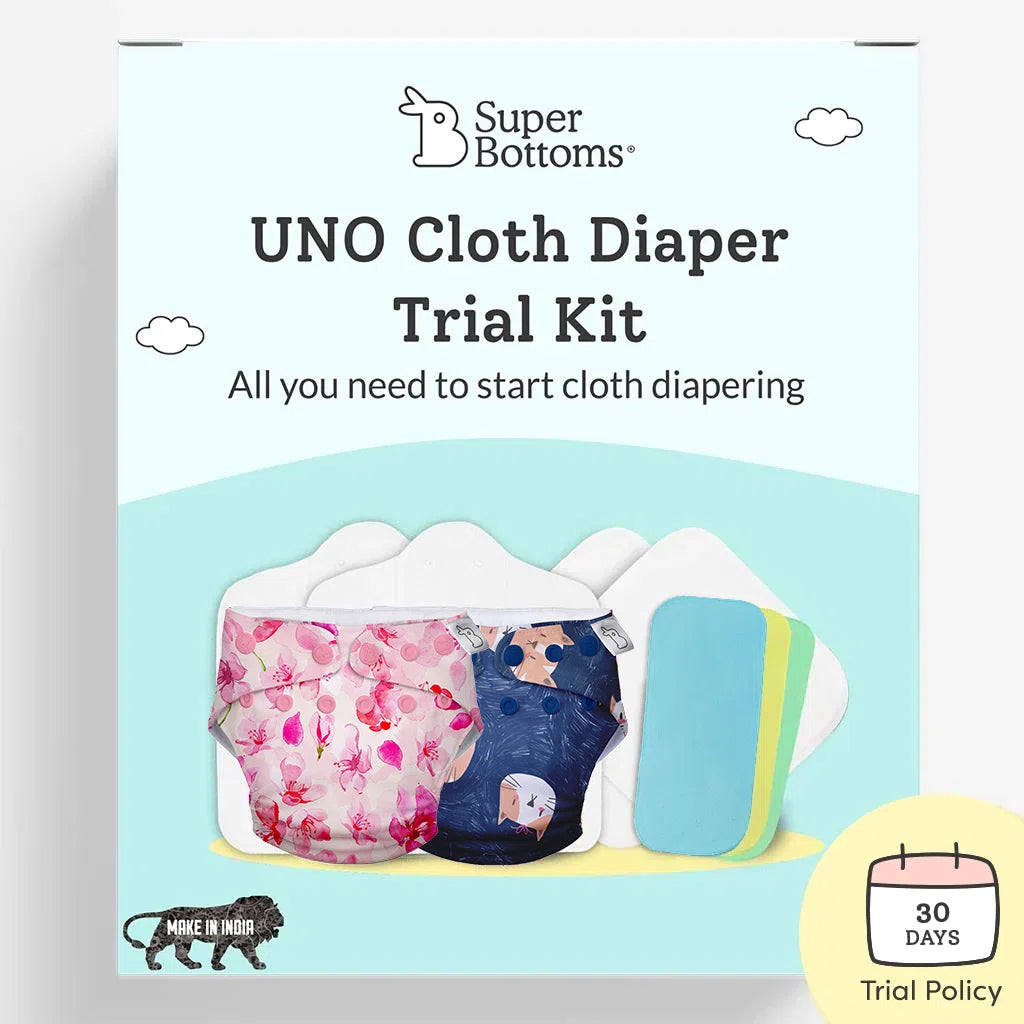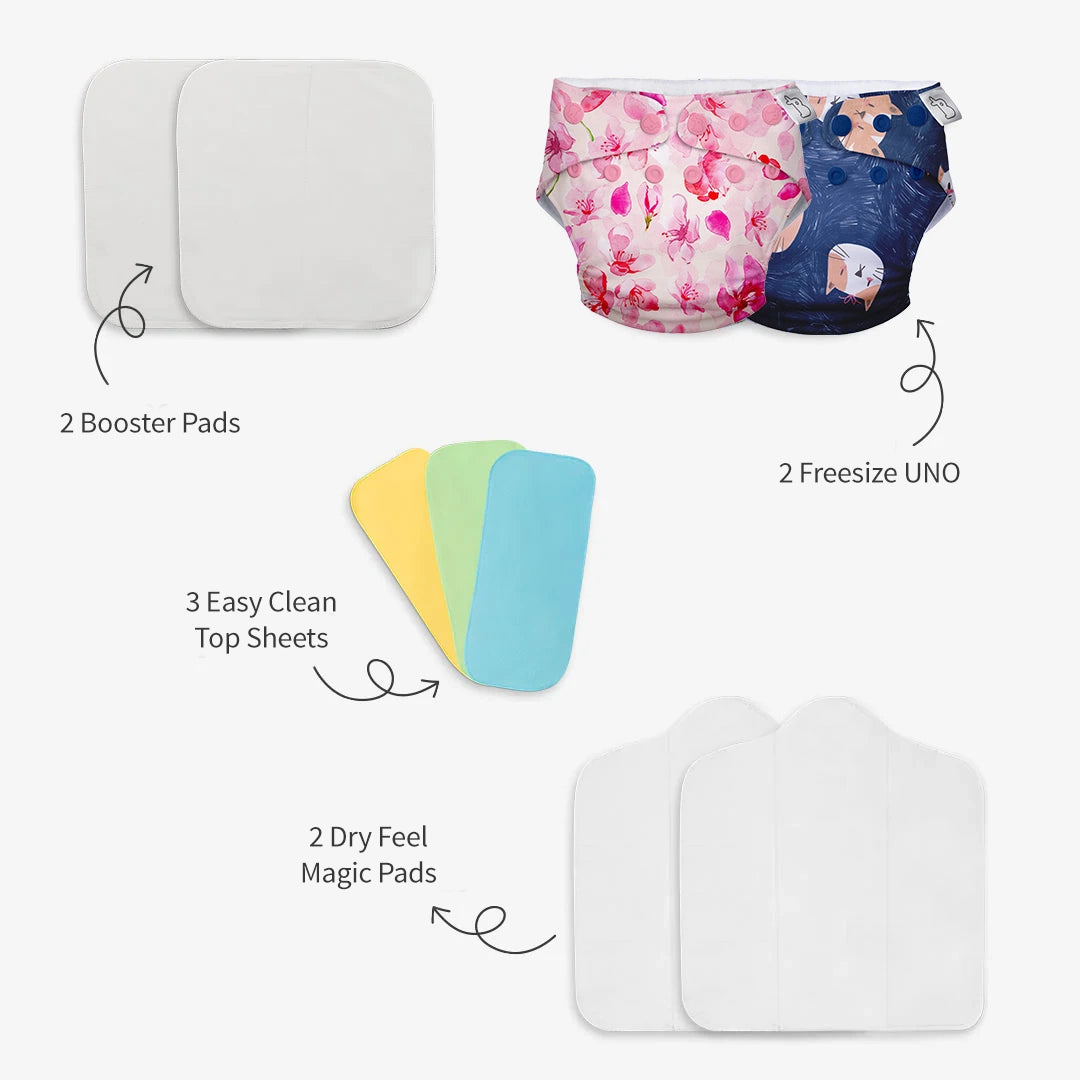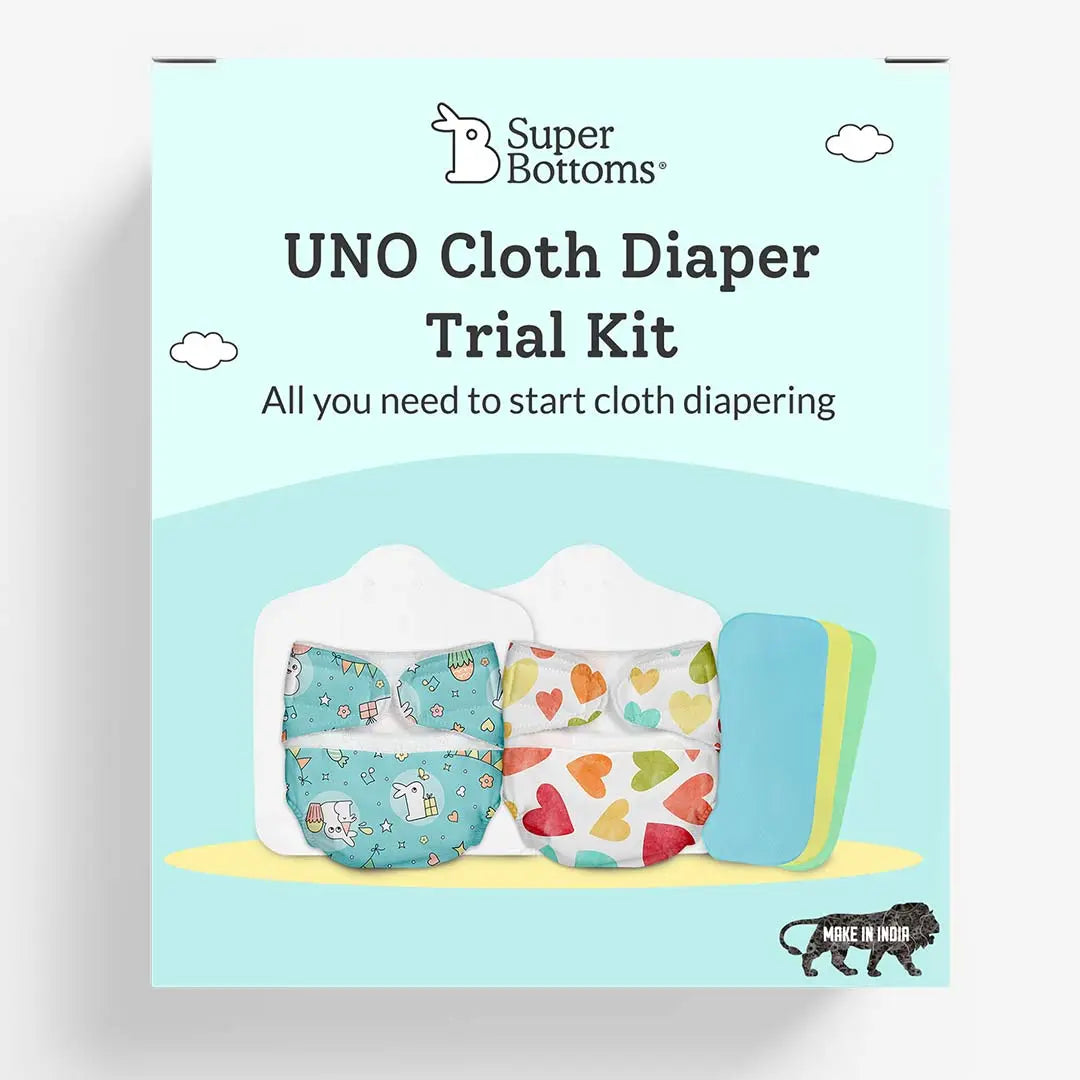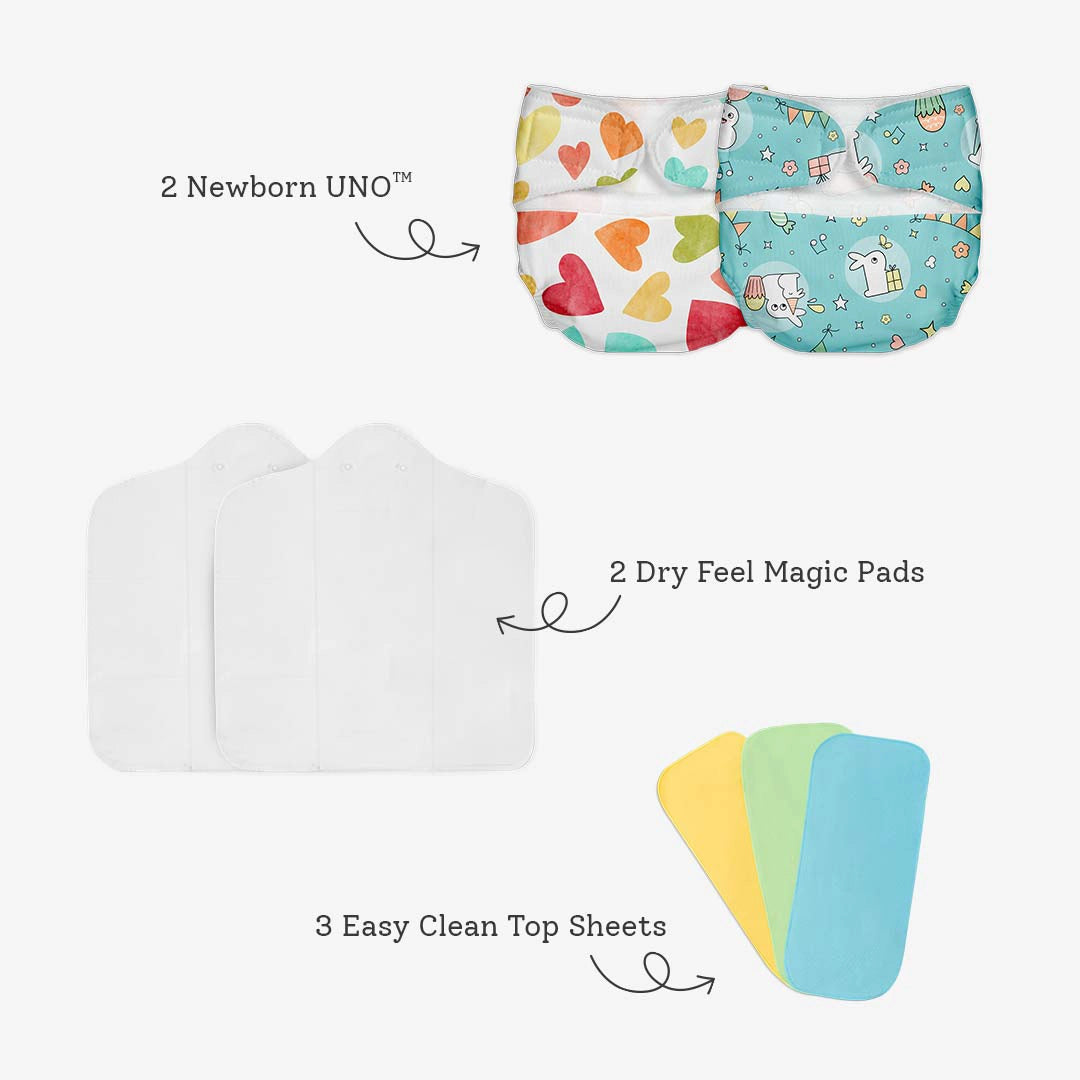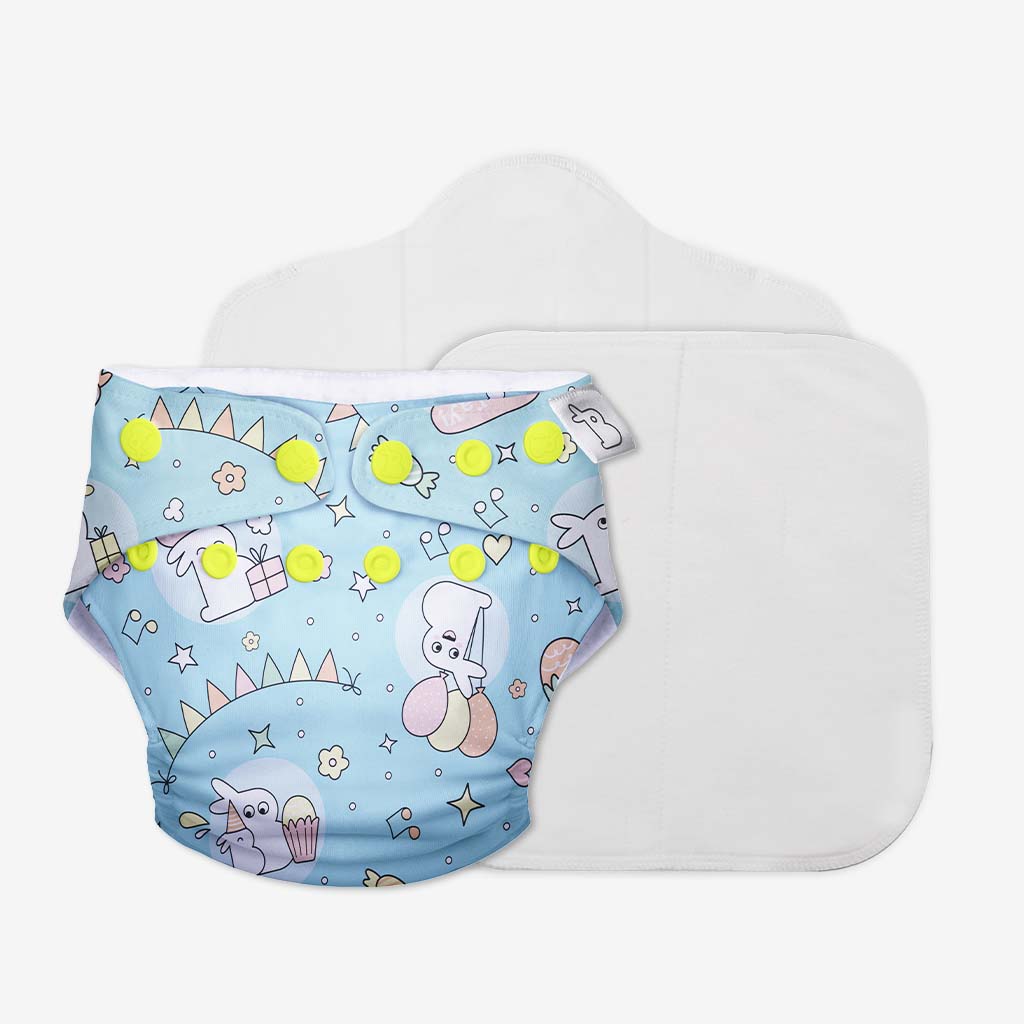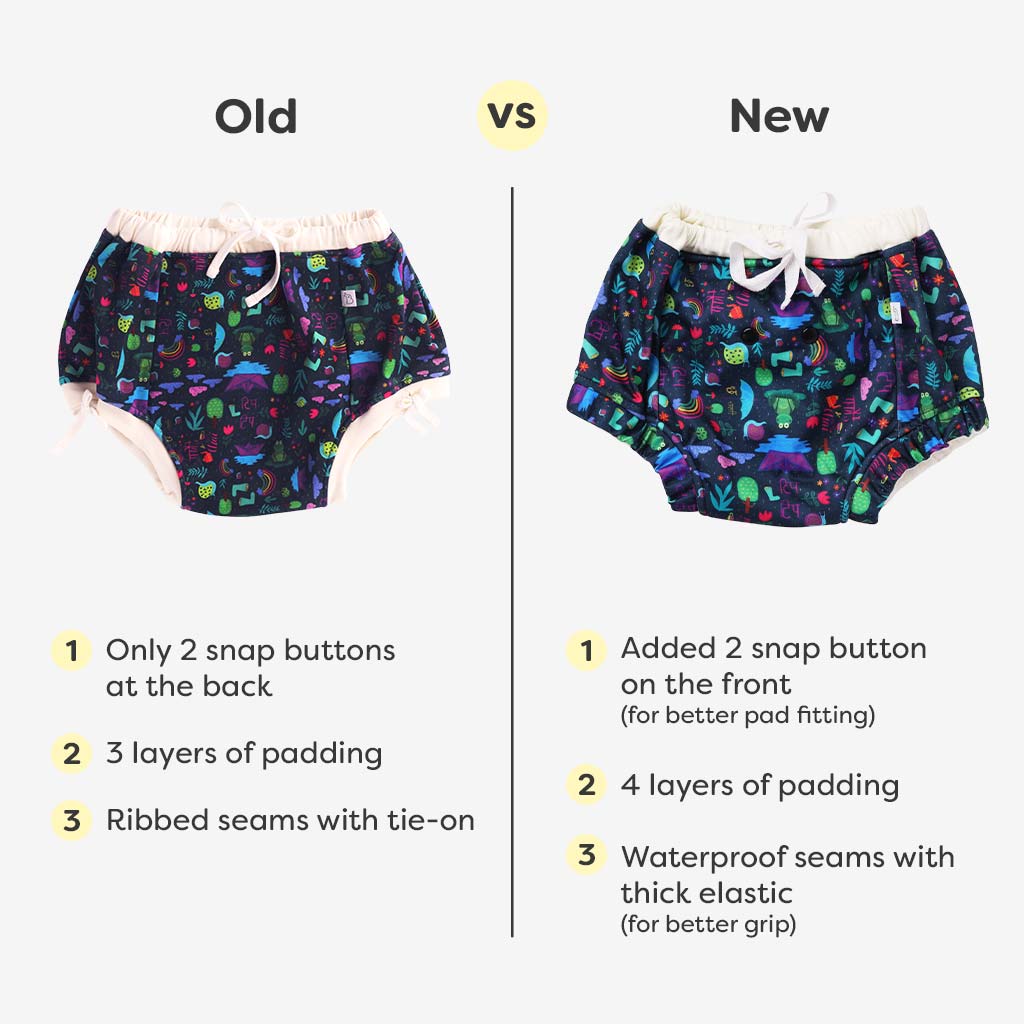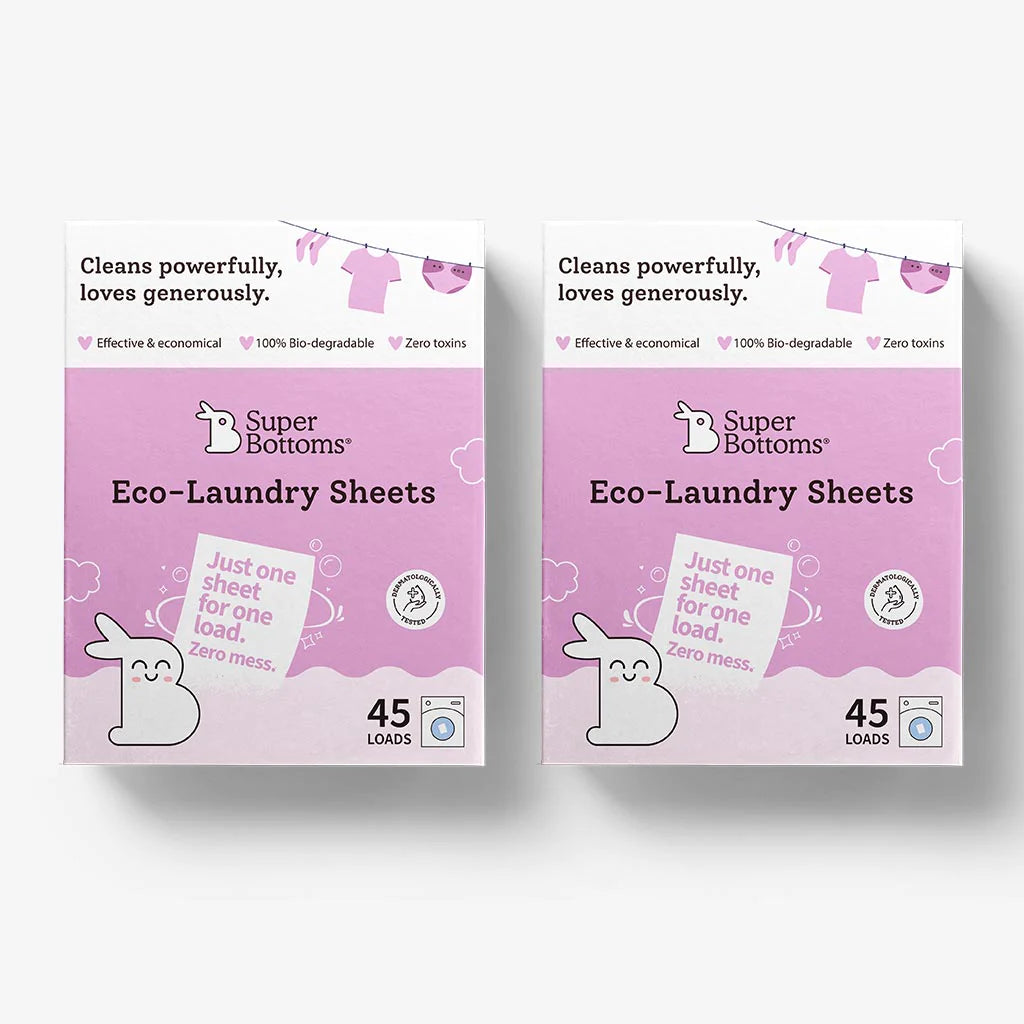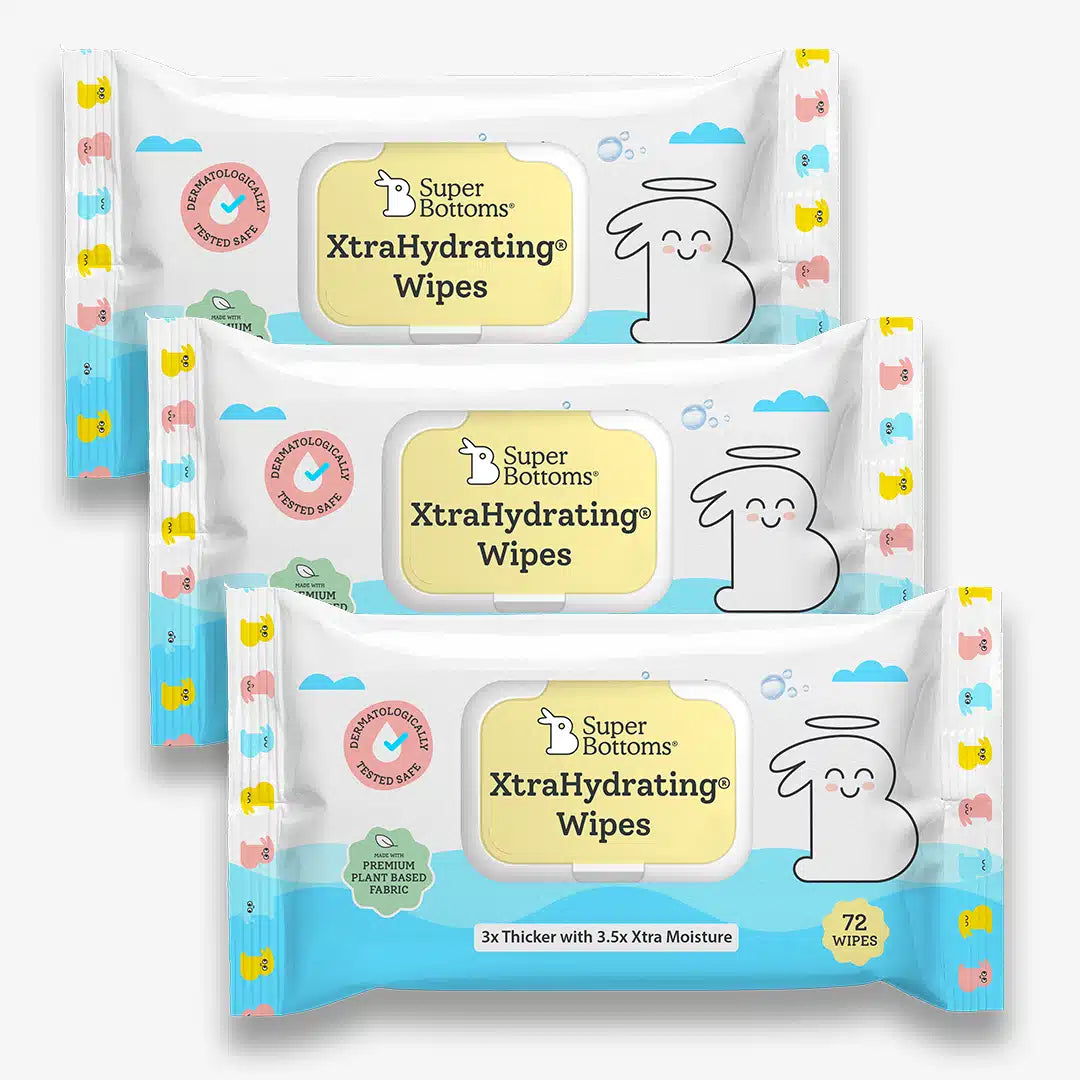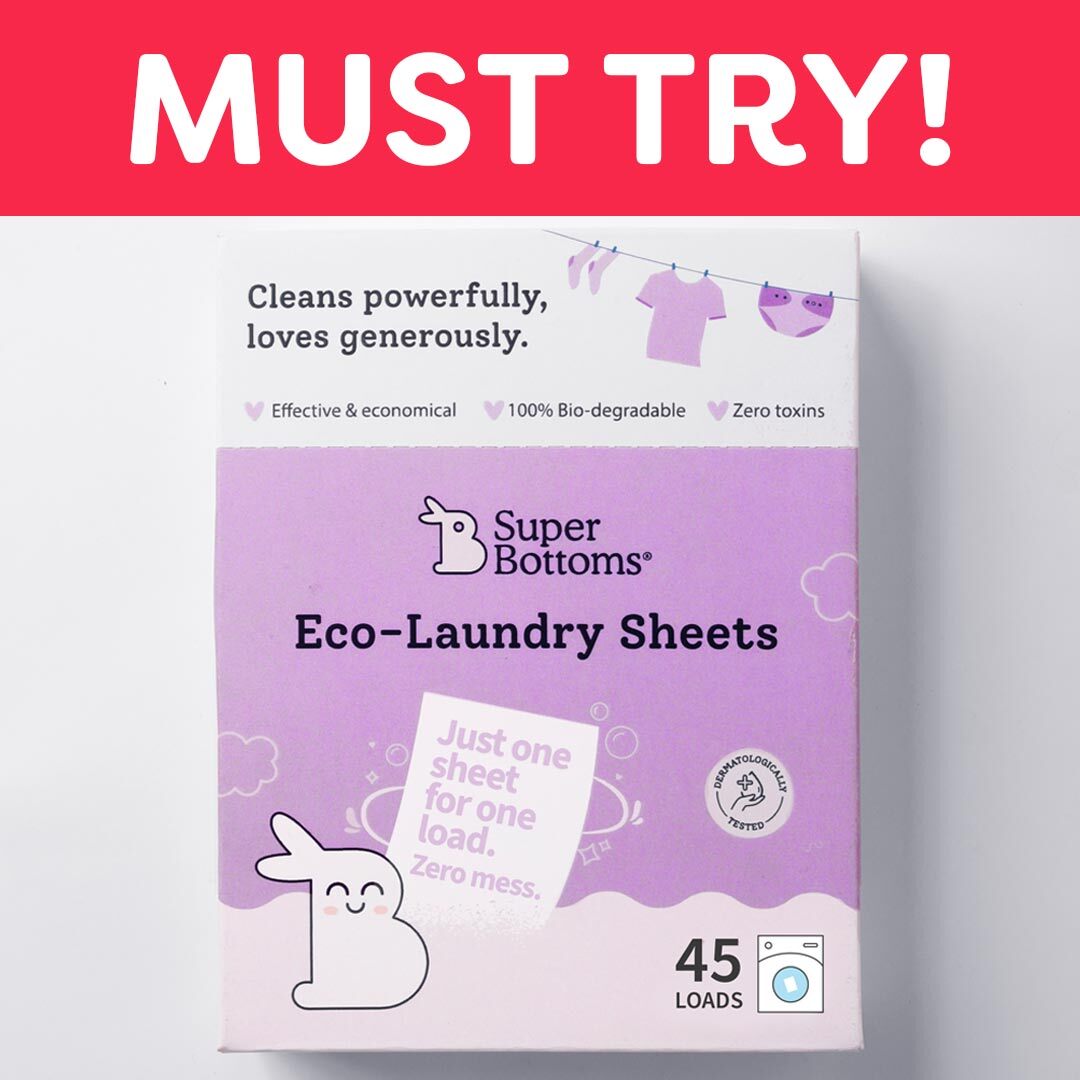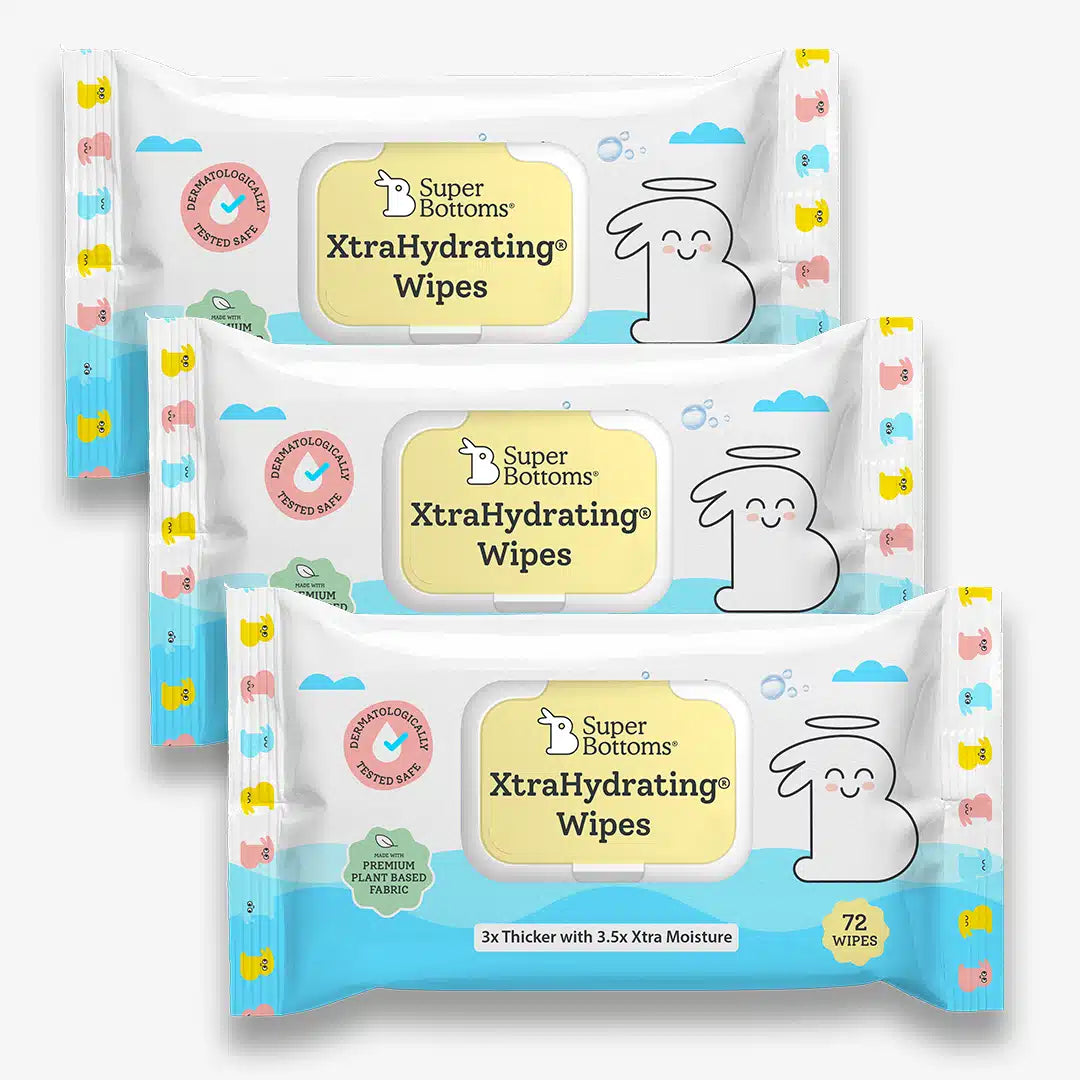• Introduction
• 4 Month Baby Development
• 4 Month Baby Milestones of Growth
• Health of A 4 Month Baby
• 4 Month Baby Diet Chart
• 4 Month Baby Sleep
• 4 Month Baby Schedule
• Key Takeaways
• FAQs
• Message From SuperBottoms
The first few months of a newborn baby's and parent's life are usually all about feeding, burping, changing nappies, putting them to sleep, and comforting them when they are crying. However, the fun, bonding, and activities together come a few months down the line.
Then, the baby's schedule is more predictable, sleep and feeding are more streamlined, and the phase of giggles, laughter, bonding, and outings begins. This article will discuss everything about the 4-month baby growth—from milestones to schedules, health, food, and sleep.
4 Month Baby Development
By this age, your 4 month baby development will have doubled its birth weight. The power of baby development 4 months old already has the strength to hold the neck steady. During tummy time, your 4-month-old baby will be able to raise its hands in the air and reach for and grab things. When on its back, it will play with its toys and even put them in its mouth.
A four-month-old baby also starts to babble more clearly and uses a combination of vowels and consonants. So, you will hear a lot of gaga baba tata and soon be ready to listen to the sweet sound of mama and dada, too!
4 Month Baby Milestones of Growth:
Now let us look at the 4 month baby milestones that your little one will achieve at this age:
• Your baby will be more interested in playing and interacting with others.
• They will start noticing their reflection in the mirror.
• They can push onto their hands and elbows during tummy time.
• They will start to recognise the familiar faces of family and people who spend time with them regularly. You will notice the smile and excitement when someone familiar walks into the room.
• They reach for objects with one hand. In their newborn stage, their fist is more open than closed.
The health of A 4 Month Baby
At 4 months, regular visits to the paediatrician are crucial for monitoring a baby's health and baby development 4 months old. During these check-ups, the paediatrician will measure the baby's height, 4-month-old baby weight, and head circumference and record them on a growth chart to track their 4-month baby's growth and progress. Vaccines, including HB1 and OPV, are typically administered around the fourth month to protect against diseases.
Parents should pay close attention to any changes in their baby's health or behaviour. If there are concerns about appetite, skin issues, delays in reaching developmental milestones, or any other health-related issues, it's important to discuss them with the paediatrician. Prompt communication with the healthcare provider allows for early detection and intervention if necessary.
In addition to medical check-ups of 4-month-old baby weight, parents play a vital role in maintaining their baby's health by providing a nurturing environment, proper nutrition, regular sleep, and plenty of love and attention. Creating a safe and supportive home environment promotes overall well-being and contributes to a healthy start in life for the baby.
4 Month Baby Diet Chart
At 4 months, babies typically continue with breast milk or formula as their primary source of nutrition. However, some may begin to show signs of readiness for 4-month-old baby food or solid foods. Here's a simple 4-month baby diet chart for introducing solids:
|
Food Group |
Food Examples |
|
Cereals |
Iron-fortified rice cereal |
|
Fruits |
Mashed or pureed bananas, apples, pears |
|
Vegetables |
Mashed or pureed sweet potatoes, carrots |
|
Proteins |
Pureed cooked chicken, turkey, tofu |
|
Dairy |
Small amounts of plain yoghourt or cheese |
Remember to introduce one new food at a time, waiting a few days before introducing another, to monitor for any allergic reactions. Start with small portions of 4-month baby food and gradually increase as your baby gets used to eating solids. Always consult with a paediatrician before introducing solid foods to ensure it's appropriate for your baby's development and health.
4 Month Baby Sleep
Here's a table summarising a typical 4-month-old baby's sleep schedule and related considerations:
|
Aspect |
Details |
|
Total Sleep Time |
12 - 16 hours per day (24 hours) |
|
Daytime Naps |
Around four naps totaling 3 - 4 hours |
|
Nighttime Sleep |
More than 10 hours with interruptions for feeding if hungry |
|
Rolling During Sleep |
Babies may roll from back to tummy during sleep; place them on their back to sleep |
|
Transition to Crib |
Consider transitioning baby to their crib if still co-sleeping, following safety guidelines |
This schedule serves as a general guideline, and individual babies may have variations in their sleep patterns. Always prioritize safety and consult with healthcare professionals for personalized advice.
|
Limited Offers Ending Sooner - BUY NOW Now or never offers live on the SuperBottoms website. Take advantage of the never-before Good Value for Money on our offer page! Stock up on the bestselling UNO diapers, accessories & other popular SuperBottoms baby and mom products now available in deals and discounts. HURRY, the Deals are Live till stocks last! |
4 Month Baby Schedule
Here's a table outlining a typical schedule for a 4-month-old baby:
|
Time of Day |
Activity |
|
Morning |
Wake up, feed, diaper change, playtime |
|
|
(tummy time, singing, talking) |
|
Mid-Morning |
Nap (usually 1-2 hours) |
|
Late Morning |
Wake up, feed, diaper change, interactive playtime |
|
|
(toys, rattles, sensory activities) |
|
Early Afternoon |
Nap (usually 1-2 hours) |
|
Late Afternoon |
Wake up, feed, diaper change, more playtime |
|
|
(gentle games, reading) |
|
Early Evening |
Short nap (30 minutes to 1 hour) |
|
Evening |
Feed, diaper change, family time (4 months baby activities of bonding, cuddles) |
|
Night |
Bedtime routine (bath, feed, bedtime story), put baby to sleep |
|
|
(around 7-8 pm) |
Expect feedings and diaper changes as needed throughout the night, typically every 2-4 hours. Adjust the schedule of 4 months baby activities based on your baby's cues and needs.Use SuperBottoms Freesize UNO Cloth Diapers so that your baby can stay comfortable throughout this schedule. You can also use SuperBottoms Knee Sleeves when your baby is crawling. It acts as a protective layer between the baby's thighs and the floor thus protecting the knee from scrapes, scratches, scuffs or grazes.
Key Takeaways:
1. At four months, babies typically develop improved head control, can roll from tummy to back, and may start to push up on their arms during tummy time.
2. Babies at this age become more interactive, smiling, cooing, and babbling in response to stimuli. They may also begin to recognise familiar faces and show interest in toys and objects.
3. Babies' sensory abilities continue to develop, with an increased focus on exploring objects with their hands, bringing toys to their mouths, and showing preferences for certain sounds, colours, and textures. They may also start to reach out and grasp objects intentionally.
FAQs:
Q1. Will my 4 months baby baby be able to sit on his own?
Your baby is still gaining control over their neck and head at this age. Therefore, he will not be able to sit unsupported. However, they can sit with proper support on the back and sides.
Q2. Does a 4 months baby need water?
At 4 months, your baby will still be on breastmilk, formula, or a combined feed. You do not need to give water to your baby until the age of 6 months or until they start solid foods.
Q3. How long should I give tummy time to my 4 month old baby?
Start with a few seconds and build up to three to five minutes per session. You can read about Tummy Time For Babies in our article HERE.
Message From SuperBottoms
Hi there, new parents! No matter where you are around the world or in India, SuperBottoms ensures your kids are using the best and safest products. SuperBottoms offers the best cloth diapers, which are completely safe and gentle for your baby, DryFeel langots for diaper-free time, padded underwear for potty training your kids, and period underwear for women. These products suit your baby's delicate skin at any time of year. SuperBottoms is a must-have product for you and your child whether you live in Canada, Kuwait, the United States, Qatar, Hawaii, Bahrain, Armenia, the United Arab Emirates, or the Philippines. SuperBottoms products are also available on Amazon, Myntra, Flipkart, FirstCry, Zepto, Swiggy and Blinkit.
Reference Links
1. Important Milestones: Your Baby By Four Months
2. Your Child’s Development: 4 Months (for Parents)



